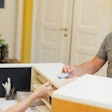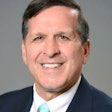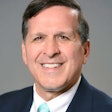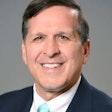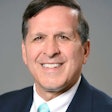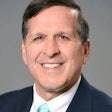
"Do you have a minute?"
How many times have we heard this? Patients see us in a social setting or at a local event, and we are asked an inevitable dental question. With the advent of HIPAA, we have an out to say we shouldn't be discussing personal medical information in a public setting. But, for the most part, they persist.
 Sheri B. Doniger, DDS.
Sheri B. Doniger, DDS.One of the more interesting times this happened was on a recent flight. Somehow, talking about dry hands, it was revealed I was a dentist to a group of flight attendants. After two left, the third said, "I hate to do this to you, but I have a question. I just had a ton of recent work done, including a root canal and a crown on my tooth, and I see some metal around the edge of the porcelain crown. Is this OK?" After asking him which tooth it was and reassuring him that no one will see the margin of his posterior second molar, he was relieved.
Apparently, he went home after the procedure, pulled his cheek back and checked it out. He never called his dentist or the office to ask this question. One would wonder why? If patients have a concern after a major dental procedure, why wouldn't they call their dentist? Are we that fear-inducing? But, to ask a "strange" dentist, that's OK. He was so grateful that he gave me a bottle of wine.
In another instance, you may receive a phone call from a reclusive patient who just wants to ask a question without scheduling an appointment. Your business manager either gives you the phone or you return the call during a break in the schedule. The quick question rolls into a 20-minute discussion of potential treatment. As we all know, there is no way to truly determine treatment without the patient sitting in a treatment chair -- especially if the patient hasn't been in the office in a long time. We may be able to look at historic records, but they may not offer a solution to the issue at hand.
The most interesting time this happens is when the patient is not of record. You happen to be introduced to a group of people and your profession is uncovered. Don't get me wrong. I love being a dentist. I wear it proudly. I talk about flossing all the time. But, when approached by a person who is not a patient of record, it is an interesting dance. For the most part, people will laugh and say, "Oh, Doc, this tooth hurts," and they point to a random tooth.
Occasionally, the conversation does morph into a real discussion of a problem area, a problem office management situation, or a problem dentist. No one wants to offend, so we listen. Unfortunately, this does not solve the person's issue, but, honestly, this may be the most time the person has "face time" with a real dentist. You would never disparage an office of another professional. It isn't right or ethical. At some point, you may invite the patient to come to your office for a visit to get the real second opinion being sought.
It is interesting that everyone loves their dentist. They are reticent to change and schedule for another opinion. They want advice, although it is impossible to determine the depth of any dental issue without physically seeing a patient. When I get the "Hey, Doc" question, I wonder how much that dentist truly loves the patient? How much has that dentist listened to the patient in the past?
Yes, I hear you say that we all have had patients with whom we have discussed treatment plans and they look like they are hearing but not really wanting to hear. We may have repeated it several times, but they just choose not to act.
I will always let them know I am available for a visit to evaluate the problem. Because, as I tell these potential new patients, since I have not honed my x-ray vision, I am unable to give them the answers they deserve. I then give a card. The invitation is always open for them to schedule. A graceful exit from a sometimes thought-provoking discussion is usually the wisest thing to do. And then, we go on to talk about if there will ever be spring in Chicago and if the Cubs will win more than 50 games this year.
Sheri B. Doniger, DDS, practices clinical dentistry in Lincolnwood, IL. She is currently vice president and president-elect of the American Association of Women Dentists and editor of the American Association of Women Dentists "Chronicle" newsletter. She has served as an educator in several dental and dental hygiene programs, has been a consultant for a major dental benefits company, and has written for several dental publications. You can reach her at [email protected].
The comments and observations expressed herein do not necessarily reflect the opinions of DrBicuspid.com, nor should they be construed as an endorsement or admonishment of any particular idea, vendor, or organization.








